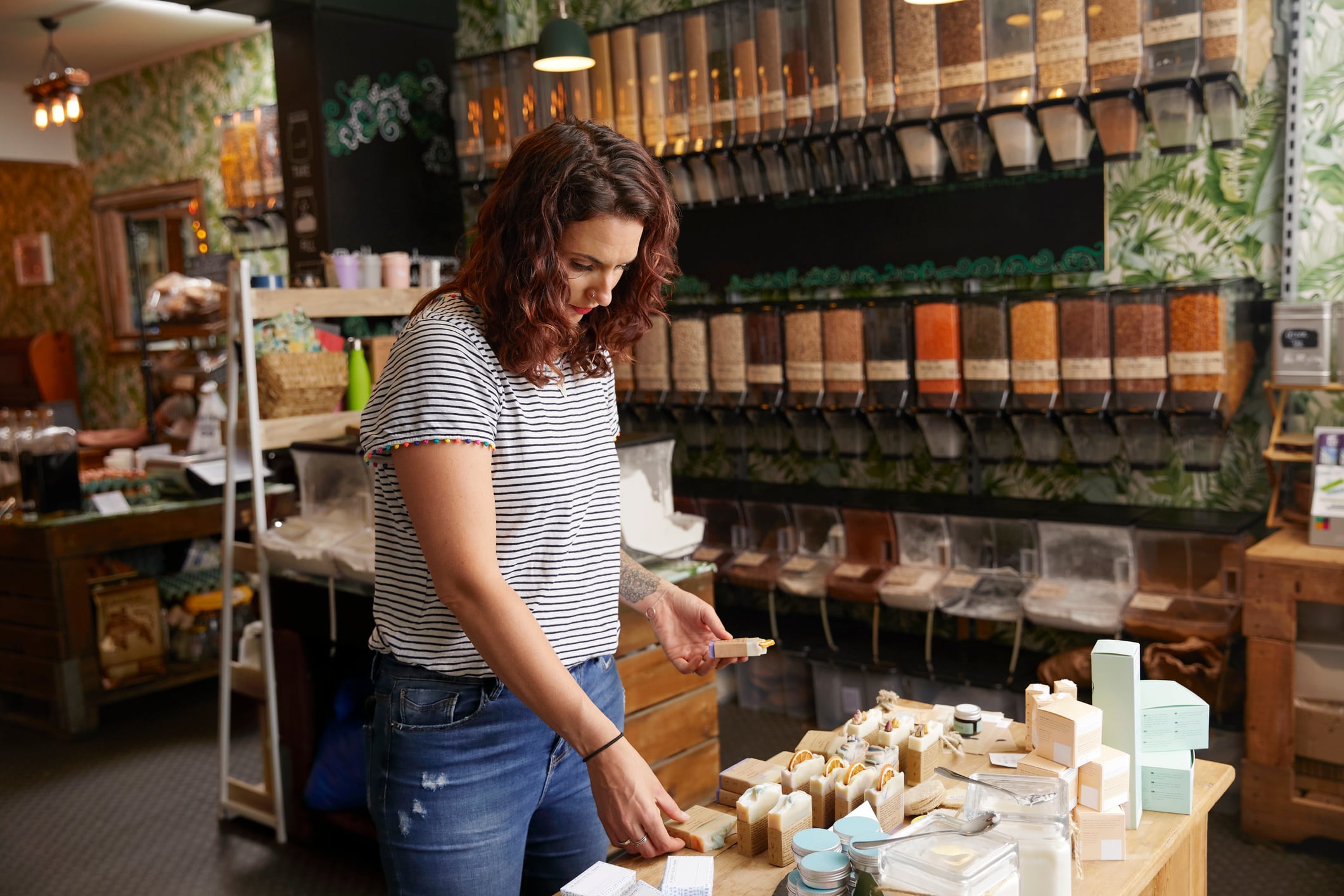As increasingly tighter rules aim to address environmental concerns, businesses face mounting pressures to meet these new sustainability targets.
This year’s InCosmetics Global trade show housed a dedicated Sustainability Zone to help beauty and personal care companies navigate the ever-changing rules, as they continue their journey to become more sustainable throughout their supply chains.
According to Dr Barbara Olioso from The Green Chemist Consultancy – who was moderating and overseeing the Sustainability Zone – it’s a challenging topic for businesses and more collaboration could very be helpful.
It's a complex topic,” she explained. “You need to get up to speed all of the time about the latest findings. You need to liaise with experts to get the most up-to-date information and then apply it in your everyday development and manufacturing. But it’s difficult to acquire all that knowledge by yourself.”
“We need more partnerships and collaboration,” she added.
Indeed, growing consumer awareness and demands for sustainable beauty products have pushed the topic firmly up the corporate agenda, while the top-down introduction of new regulations across the globe accelerated the need for cosmetics businesses to implement new and environmentally friendly ways of operating. All against a backdrop of an industry that’s highly dependent on the planet’s resources.
“Major challenges that the industry can no longer ignore”
Tiphaine Daubert Macia, a freelance consultant in environmental regulatory strategy, highlighted that global warming, water stress, loss of biodiversity, pollution, and waste are all “major challenges that the cosmetics industry can no longer ignore.”
Within the past five years, various global-scale rules and regulations have been introduced to drive sustainable practices among businesses and reduce their environmental impact.
For example in the European market, the Corporate Sustainability Reporting Directive (CSRD) introduced in 2023, and 2020’s European Green Deal, have taken centre stage to ensure companies take accountability and help to create a greener future.
“The CSRD is a major piece of legislation for economic activity in Europe,” said Daubert Macia. “It requires companies to draw up extra financial reports on their sustainability, using a standardised format in terms of information, indicators, and action plans. The European Green Deal aims to create a circular economy that is resource-efficient, climate-neutral by 2050, and pollution-free, whilst reducing its energy and resource dependencies.”
Packaging also plays a big role in the sustainability of the cosmetics industry.
The EU’s Packaging and Packaging Waste Regulation, which aims to deal with the increasing quantities of packaging waste that cause environmental problems, was published in 2023 and is set to be in full force by the end of 2024.
Daubert Macia says the regulation applies to cosmetics packaging “in the broadest sense, from product packs (primary, secondary, wedging, box, etc.) to transport packaging, e-commerce and POS.”
She continued: “Cosmetics companies will have to review the composition of their packaging and point-of-sale displays, and compile proof of conformity files. This new framework implies new relationships with packaging suppliers, whatever their geographical origin (specifications).”
Additional regulations – including the UK's Environmental Improvement Plan, Austria's Green Government Programme, and the EU’s regulation on deforestation and the EU’s Waste Water Directive – are being progressed in order to meet similar sustainability goals and objectives.
Opportunity for differentiation
While these changes are positive for the industry and the planet, the transformative phase is not easy.
Head of AAK Personal Care, Minna Dam, says while the new environmental regulations will “undoubtedly challenge the beauty and personal care industry,” they will also offer opportunities. “Companies will be able to differentiate themselves and meet the growing consumer demand for sustainable products,” she explains.
“Adapting to these changes should be more manageable for larger companies with the legal, regulatory, and financial resources needed to meet green directives. However, they could potentially face greater scrutiny from consumers and stakeholders due to their size and visibility, making it imperative for them to be fully transparent about goals, measurables, and progress.”
She adds: “Although smaller, independent brands with limited legal and regulatory expertise may find it more challenging to navigate the complex compliance procedures, they can often be more agile, flexible, and innovative in their approach without the constraints of complex organisational structures and legacy practices. Many newer indie brands have positioned themselves green from the outset, building strong narratives around sustainability issues, which resonate well with consumers.”
Nonetheless, Dam said that all companies, irrespective of size, must embrace change to stay competitive.
“New regulations offer opportunities for companies to innovate and differentiate themselves through the implementation of green chemistry, renewable energy, and more eco-friendly packaging,” she explained.
“They also open up the potential for better collaboration with suppliers, NGOs, government agencies, and industry associations to take collective action and implement sustainable solutions.”
Focus on Life Cycle Assessments
Processes such as Life Cycle Assessments (LCAs), for example, can provide invaluable insights for businesses in the beauty industry that are striving to comply with new environmental regulations.
According to head of sustainability at The Hut Group, Adam Lowe, LCAs can provide a comprehensive analysis of a product throughout its life cycle, from raw material extraction to end-of-life disposal.
“They quantify the environmental impacts that you want to assess (be it carbon, water, energy etc.), helping businesses within the industry identify and address areas of concern and an opportunity for process improvements such as energy consumption and emissions,” he explained.
“Transparency and continuous improvement based on the results of the LCA process allows businesses to keep aligned with regulatory standards whilst reducing their environmental footprints,” he continued.
But although these can be a useful tool, businesses will still need to do their research and discover what methods work best for their specific needs throughout this period of change.
As we move forward, and the industry navigates these regulatory changes, prioritising innovation, collaboration, and transparency will be essential for organisations to survive, thrive and foster a greener future.
By acknowledging sustainability as a ‘cornerstone of innovation’, beauty companies can not only comply with regulations but also carve out a distinctive identity in an evolving market landscape.


